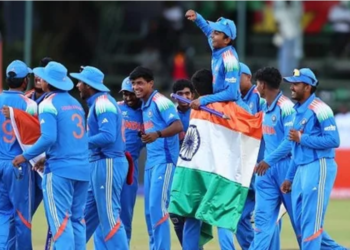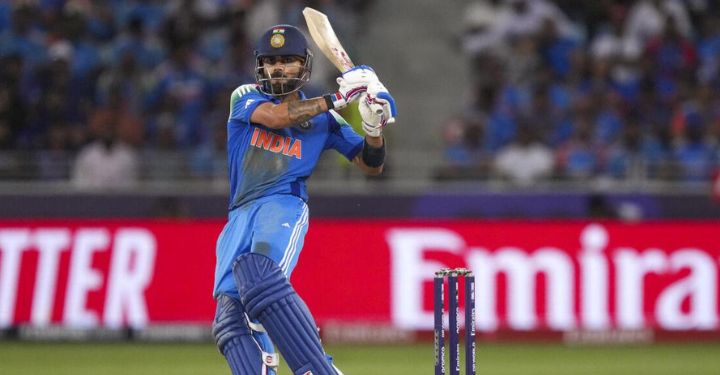As New Zealand takes a 2-0 lead in the five-match T20I series, the upcoming matches are poised to be critical for both teams. With the rain-affected nature of the second T20I, the unpredictability of weather could continue to play a significant role in the outcome of the remaining games. However, the focus now shifts to how both teams will adjust their strategies moving forward.
New Zealand’s Strengths and Areas for Improvement
New Zealand’s performance in the second T20I was a perfect blend of aggressive batting and disciplined bowling. The opening pair of Tim Seifert and Finn Allen was a standout, with both players showing a strong understanding of the conditions. The pace and accuracy of the New Zealand bowlers, led by Jacob Duffy, Ben Sears, and Ish Sodhi, were instrumental in keeping Pakistan’s total under control. Their ability to adapt to the shortened format was impressive, and it gave them the upper hand despite the interruptions.
However, New Zealand will also be looking to improve their middle-order stability. While the chase was comfortably achieved, the fall of wickets towards the end of the innings suggests that the team’s lower order needs to be more consistent when under pressure. The middle-order collapse in the second T20I is a concern, especially as the series progresses and the intensity increases.
The absence of major contributions from players like Devon Conway and Glenn Phillips in the second T20I could become a critical factor in later matches. If New Zealand can consolidate their middle-order and get consistent contributions from all their key players, they will be a force to reckon with.
Pakistan’s Fightback and Key Adjustments
For Pakistan, the second T20I was a tough outing. Their batting woes, particularly at the top, were a major factor in their inability to post a competitive total. The early loss of key batsmen like Mohammad Haris, Irfan Khan, and Khushdil Shah left Pakistan reeling. While Agha Salman and Shadab Khan tried to steer the team to a respectable total, they were unable to generate enough partnerships to accelerate the scoring.
One of the key areas Pakistan will need to address is their top-order performance. The failure of the opening batsmen to provide a solid foundation has been a recurring issue, and they must find a way to adapt to New Zealand’s bowling attack. If Pakistan’s top order can fire in the next games, they will have a better chance of putting pressure on New Zealand’s chase.
The bowling, too, was inconsistent in the second T20I. While Shaheen Shah Afridi is one of the world’s premier fast bowlers, he struggled to make an impact in the early overs. Mohammad Ali and other bowlers also found it tough to break the partnership between Seifert and Allen. Pakistan’s bowling attack, despite being skillful, needs to show more discipline and work on maintaining pressure over longer periods.
Pakistan will need to rally together and make some tactical changes. Adjusting to the conditions and playing smarter cricket, especially when facing New Zealand’s aggressive batting, will be key for them to get back into the series.
The Weather Factor
The rain-affected nature of the second T20I, which led to the match being reduced to 15 overs per side, added an element of unpredictability to the encounter. In T20I cricket, such disruptions can often skew the balance, making it even more important for teams to stay flexible and adaptable in their approach. With the weather likely to continue being a factor in the upcoming matches, both teams will need to be prepared for any interruptions.
This could result in more high-paced, aggressive cricket, with teams trying to maximize the overs available. New Zealand’s ability to adapt quickly to these shortened formats will continue to serve them well. In contrast, Pakistan will have to find ways to counteract the pressure that comes with reduced overs, particularly in batting.
The Road Ahead
With New Zealand now in a commanding position in the series, Pakistan must regroup and focus on their strengths in the next match. The pressure is on the visitors to find answers to their batting issues and bring a more consistent performance to the table. On the other hand, New Zealand will look to capitalize on their current momentum and seal the series with a win in the next match.
The third T20I, scheduled to be played at a different venue, will provide both teams with an opportunity to recalibrate. For New Zealand, it’s about continuing their dominance and ensuring that they maintain their aggressive approach, while Pakistan will be hoping for a resurgence with a more balanced effort in both batting and bowling.
As both teams look ahead, they will need to manage the pressures of the shortened format and adjust their strategies accordingly. With key players like Seifert and Allen in fine form, New Zealand’s prospects look promising. However, with the unpredictable weather and the talent within Pakistan’s squad, the series is far from over. The next few games will be crucial in determining which team can adapt best to the conditions and ultimately claim victory.
For More News updates : https://asiapedia.in












